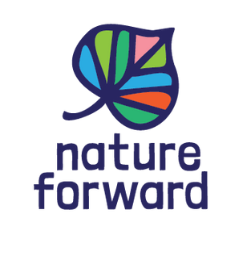While too many cooks in the kitchen can spoil the broth, we need all the cooks we can find to help protect the environment. Broad engagement from area residents is key to making good environmental policy.
“We have worked hard for the last few years to set future-oriented priorities for our conservation advocacy. (See our priorities here). And we’ve expanded the range of people and communities with whom we work,” says Nature Forward Conservation Director Eliza Cava.
During April’s “Speaking Up for Nature: How Nature Forward Does Advocacy” Conservation Café, Cava shared recent environmental wins, disappointing losses, and what propels Nature Forward’s advocacy work.
Successful advocacy relies on people–partners in coalitions, local residents involved in their communities, and Nature Forward’s dedicated volunteers. “We love our volunteers,” says Cava, explaining that volunteers play crucial roles in support of our advocacy effectiveness. “Our volunteers do detailed research, take minutes at meetings, organize rallies, and most importantly testify–in writing and in person–in favor of good environmental legislation and policy. We couldn’t do our great work for people and nature without our volunteers!”
Our recent legislative wins on behalf of forests in Montgomery County and the state of Maryland, would not have been possible without the support of thousands of individuals across the region speaking out in favor of trees. “More trees please!” was their motto! Our constituents know that trees provide countless ecological services such as flood prevention, carbon sequestration, heat protection, and air and water purification. Sadly, our region as a whole, and Maryland in particular, has lost an enormous amount of forest cover over the last few decades. Updating Forest Conservation laws doesn’t automatically grow back the forest and tree canopy, but the new laws we secured set the stage to reverse tree loss trends and ensure increasing tree and forest cover for the future.
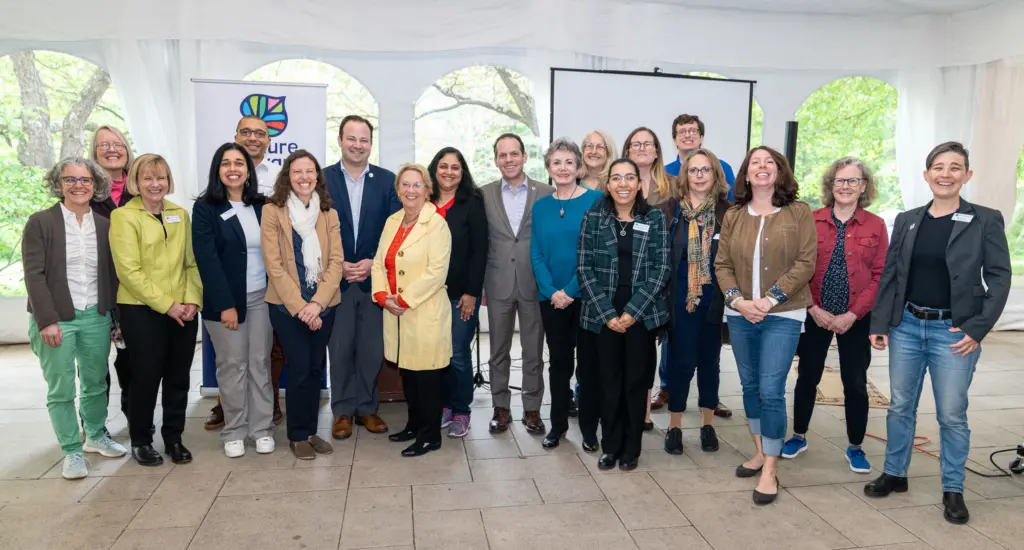
Advocacy is also ramping up in Washington, DC, where Nature Forward has helped secure other environmental victories. For instance, DC Mayor Muriel Bowser signed into law the Migratory Local Wildlife Protection Act, a measure that will add bird safe practices to DC’s building code. That’s a great tip of the hat to Nature Forward’s founders, who came together on behalf of bird conservation. And we activated volunteers to testify in favor of the new Healthy Homes Act that will provide incentives to phase out CO2 spewing gas appliances and switch to electric in low to moderate income homes.
“We’re growing advocates in the community,” says Nature Forward’s DC Advocate Jamoni Overby, who is working to recruit new environmental advocates in Ward 8. “We have a Raise Your Voice program that educates residents on how different government agencies affect environmental policy. We train neighbors to get involved in advocating for strong environmental policies and practices in their own neighborhoods.”
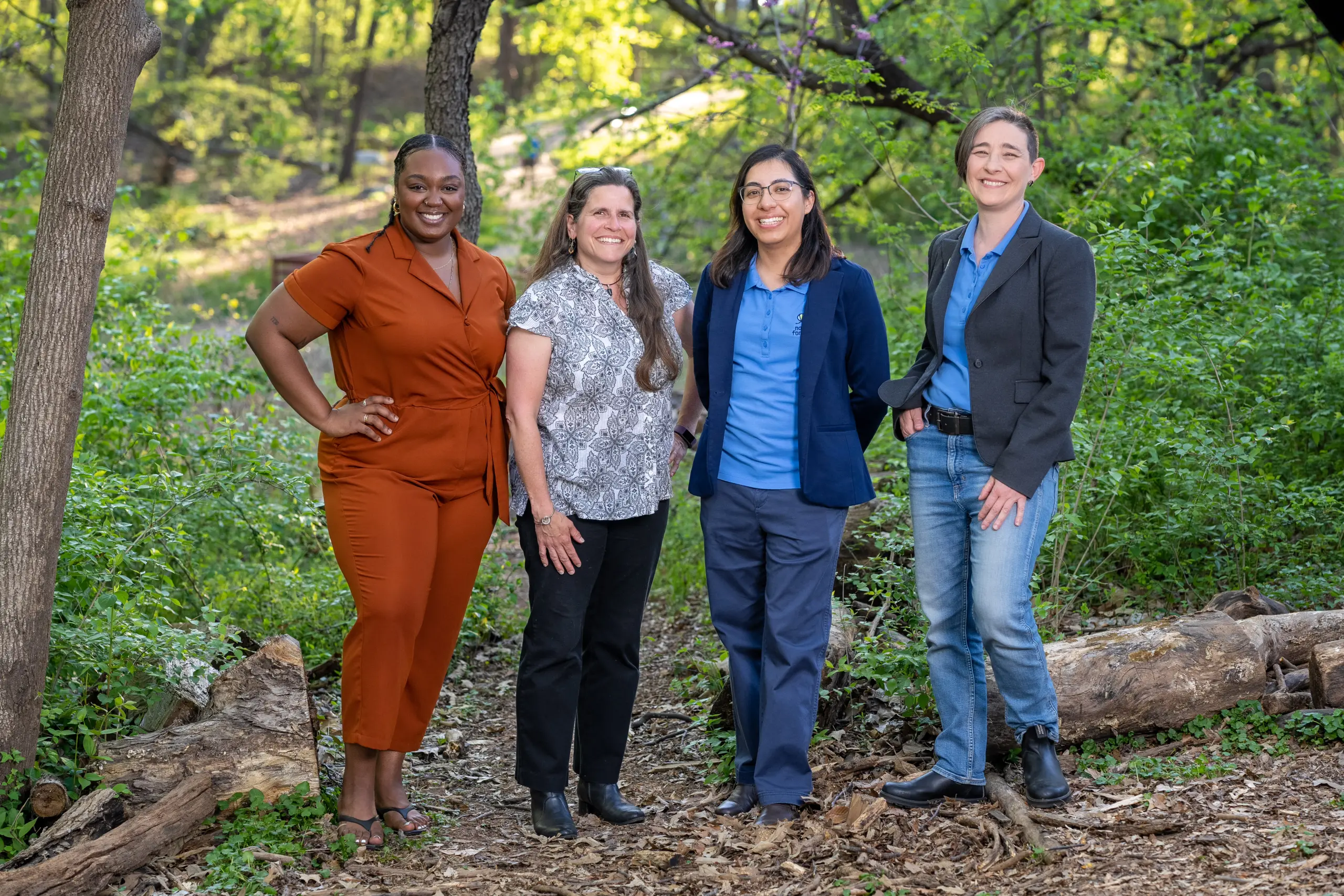
“We’re growing advocates in the community. We train neighbors to get involved in advocating for strong environmental policies and practices in their own neighborhoods.”
Jamoni Overby, DC Conservation Advocate
Nature Forward hosts numerous community outreach programs, in places like Ward 8 Water Watchers in Washington, D.C., Water Protectors of Little Hunting Creek in Fairfax County, and ¡Sí Se Puede! based in the Long Branch section of Silver Spring, MD. For these community members, who have not traditionally accessed the inner workings of government, our outreach programs help equip and train them to have a greater sense of agency over the natural resources in their community and to advocate for their neighborhood priorities.
Other tools in our advocacy kit include Action Alerts that galvanize community members to write and call legislators when important policies or laws (both good and bad) are in play. Our Conservation Blog keeps local environmental issues front and center for members and supporters of Nature Forward. Informative blog posts go up regularly with headlines such as: “Don’t Let The Mayor Delay DC’s Climate Commitments,” “Electrify Montgomery County’s Future Buildings Today,” and “Speak Up For Stronger Climate Action Leadership In Fairfax County!”
In the face of so many pressing environmental challenges, Nature Forward acts strategically when it comes to our advocacy focus.
“We have over 1,000 bills that get introduced each session. We are eager to work on as many as we can, but of course we must be selective. We review all the environmental bills introduced and how they align our priorities,” says Maryland Advocate Denisse Guitarra. “We take a lot of factors into consideration when deciding where to activate our team. Is this an issue we’ve been working on already? Do we have the technical experts we need? Do we have a coalition that can support our work?”
Advocacy dates back to Nature Forward’s very beginning, when we were founded in 1897 as the Audubon Society of the District of Columbia. Early members of the organization, many of them women, worked in concert with other Audubon societies to secure passage of important bird conservation legislation. The 1918 Migratory Bird Treaty Act protects birds to this day! That’s an important example of the power and legacy that of strong environmental advocacy.
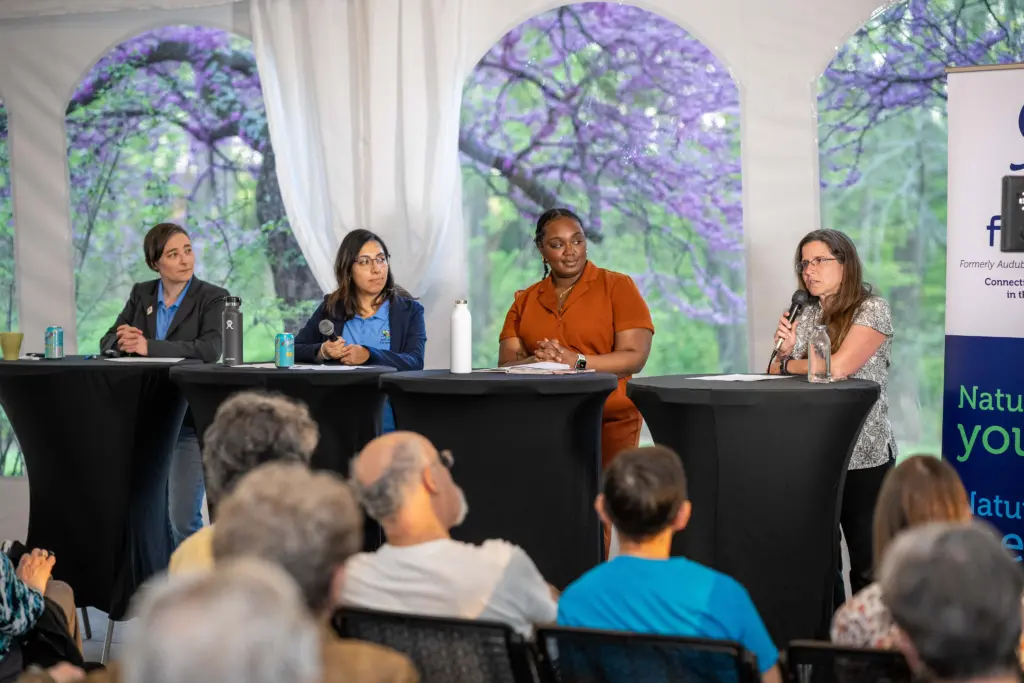
Nature Forward’s Conservation department expanded in 2019 thanks to a transformational gift from an individual that allowed the organization to triple the size of our advocacy team to take on the immediate environmental threat of the climate crisis. The regional impact of our three, full-time advocates has been outstanding, including the Fairfax County’s Board of Supervisors adoption of the county’s first-ever Community-wide Energy and Climate Action Plan (CECAP) in 2021. Renee Grebe, Northern Virginia Advocate, says that she loves the policy wins, but that the losses still sting. Renee, who has been certified as a Virginia Master Naturalist since 2014, is still troubled by a recent Fairfax City decision to bury a stream and cut five acres of forest to make way for development.
“One reason we weren’t so successful–we got involved too late. It was really far along,” Grebe says of the plan. “But the really good thing that came out of it was that we actually ended up building an amazing cohort of environmental advocates in Fairfax City. That cohort helped support the election of a new, environmentally-focused city council member. This new network of environmentalists working together in Fairfax City will help us prevent future stream and forest loss.”
Conservation Director Cava rounds out her description of Nature Forward advocacy by saying that she thinks our work would make Mister Rogers proud. “Being kind in advocacy can go a long way…even when we are doing something meant to pressure elected officials. We advocate based on science, and in a way that doesn’t include personal attacks. Bringing kindness to advocacy is part of our recipe for success–and we welcome as many cooks into the kitchen to help make our environmental advocacy success possible!” she explains.
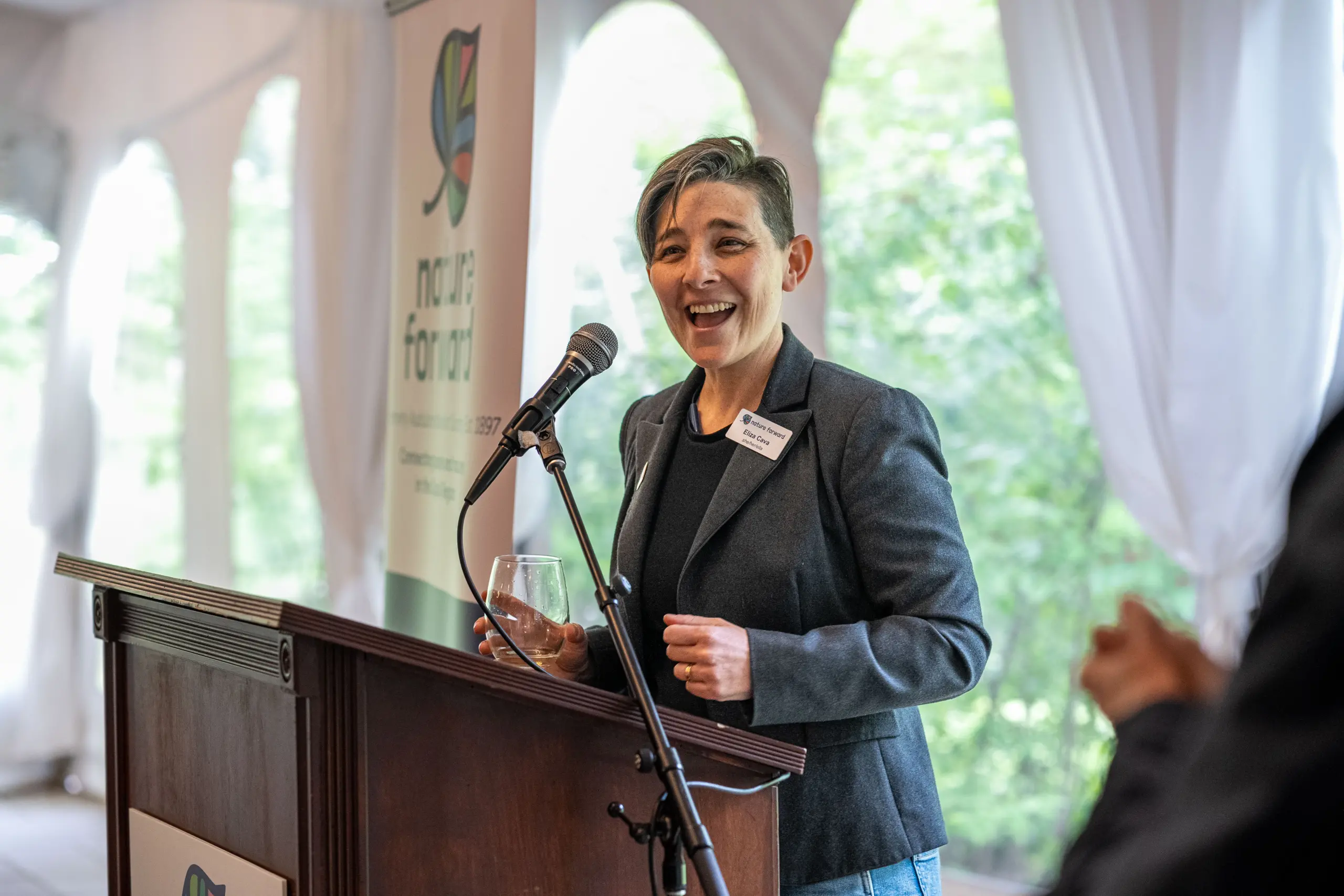
This article appeared in the Summer, 2023 Naturalist Quarterly
